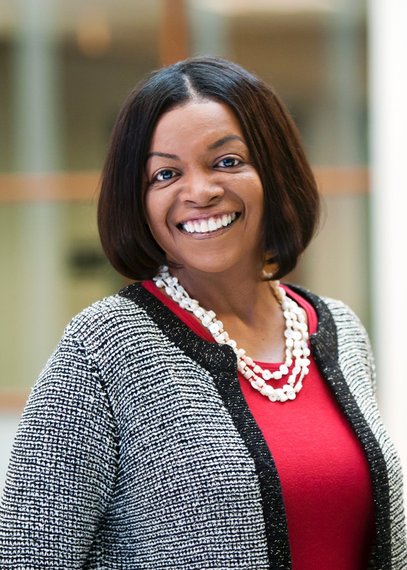As children we are taught to be leaders and not followers. In real life, there is no blueprint for successful leadership. We all have an image in our minds of what a real leader looks like. Do we see ourselves in this picture? Sadly, many of us do not view ourselves as such until we meet the person that unlocks the leadership potential buried deep within us. For many students at the University of Maryland (UMD), Dr. Nina Harris is that very person.
As an educator, she is influencing the field of leadership in higher education by teaching students how to lead and affect change in a positive way. As an Assistant Dean in the UMD School of Public Policy, she mentors undergraduate students through service based-leadership programs including the Rawlings Undergraduate Leadership Fellows Programs.
These initiatives teach the next generation of leaders how to use their college education to serve their communities through advocacy, political involvement, campus engagement, and student government. According to Dr. Harris, most of it is about developing students on multiple dimensions-personal, interpersonal, emotional, and professional. "You have to share with students; not just your successes but your failures, too. This level of giving allows me to connect with them in a way that fosters the development I want".
Her former pupils, Lenace Edwards and Beatrice Torralba, credit Dr. Harris for their growth as individuals and civic servants.
Edwards believes, "Many teachers take pride in helping students succeed academically and professionally. Dr. Harris takes pride in helping her students become better people."
"Dr. Harris made it important for us to realize how leaders, in order to be effective, must be self-aware. They must understand who they are leading, what their purpose is for leading, and why they are the right person to lead," says Torralba.
Dr. Harris serves her students outside of traditional textbook instruction by showing them that they can be social engineers for change. She teaches them that if they see wrong in the world they can right it. Unfortunately, many educational institutions lack elements of social justice and teach students that the many past injustices no longer exist. In actuality, inequality is still very much alive. Our colleges and universities should invest in creating courses that no longer focus on memorizing history and regurgitating these lessons on an exam. Instead, campuses should serve as a breeding ground for the new history makers to be molded.
Dr. Harris believes:
"Social justice means fairness and equity mixed with some retribution for historical injustices. Progress is made everyday to make the affects of some injustices a little less damaging to members of society. But, there is a lot of learning that needs to take place. We can't just 'act' because we feel something is not right. Passion is important but acting without knowing can actually make things worse."
According to her colleagues, her passion is "contagious." University of Maryland Professor and former Policy School Dean, Donald Kettl thinks, "This comes from deep inside her. Her passion is to help her students advance. It is a rarity to discover educators who are dedicated to the personal and professional success of each student they encounter."
This story should challenge educators to rethink academia and what it has the potential to be. There is more to providing students with education than reciting PowerPoint slides during a 50-minute lecture. It's not black and white like the print in the pricey textbooks that faculty assign to students each semester. It's getting in the trenches and creating connections with students that go deeper than grades. Professors have the power to influence their pupils' lives by showing them that their potential holds no bounds and to lead with passion and not hesitation.
Dr. Harris' advice to our readers is:
"Show up. Whatever you do, wherever you are in life...show up. Don't let the world we live in shrink you and keep you from being your best self. Happiness is evasive and life constantly gets in our way. Work with it, over it, around it, under it to get to where you need to be. Leadership, influence and change is not reserved for certain people."

